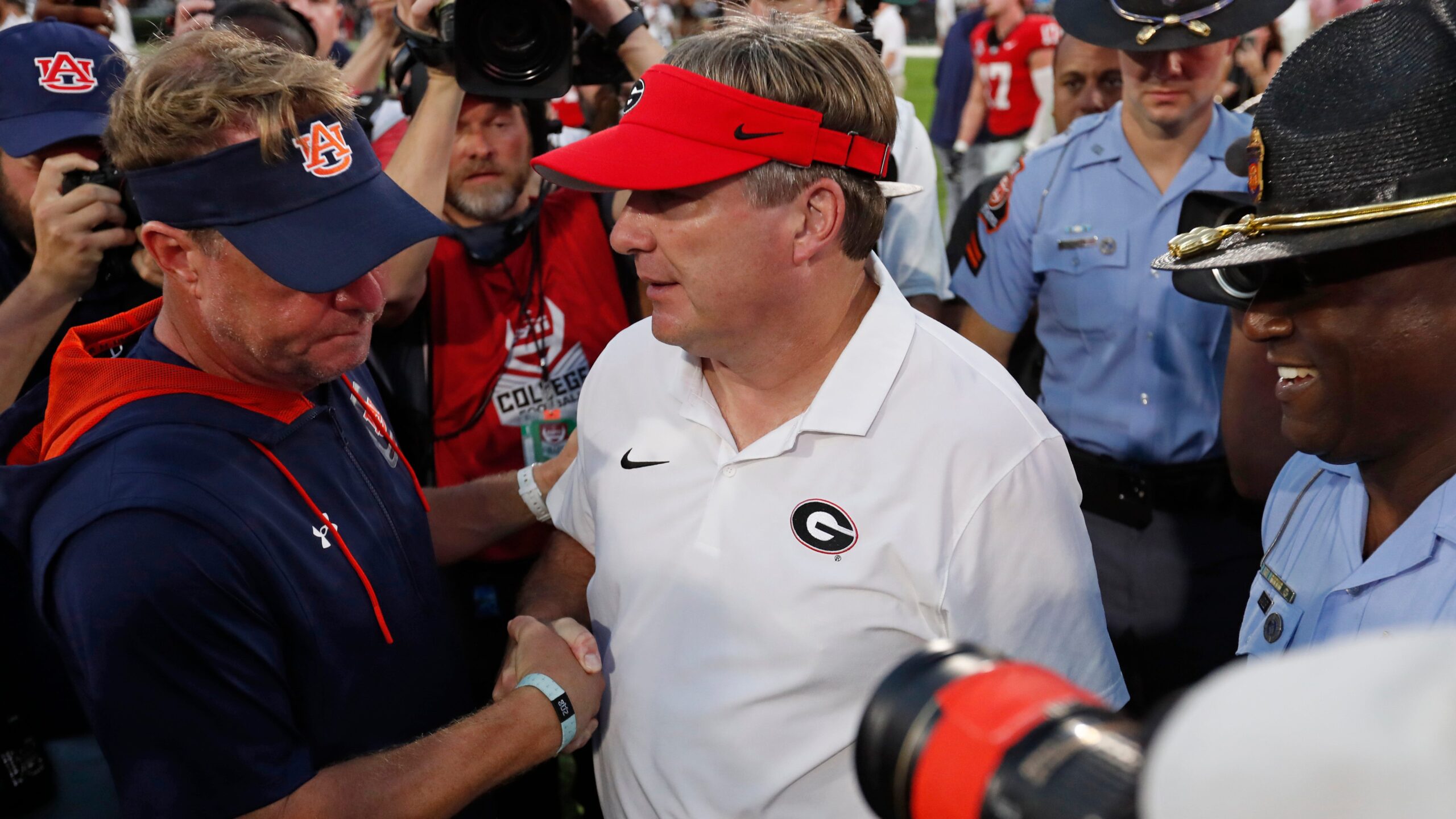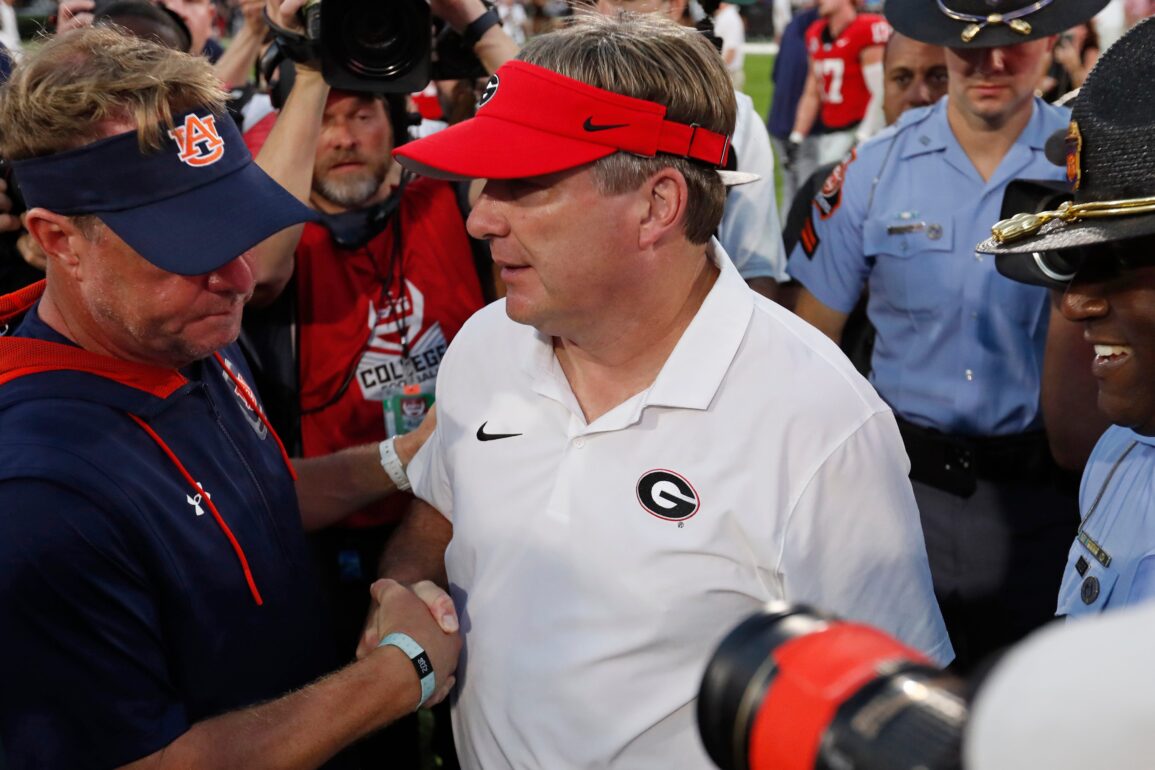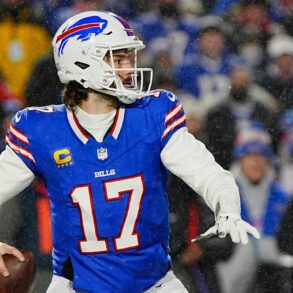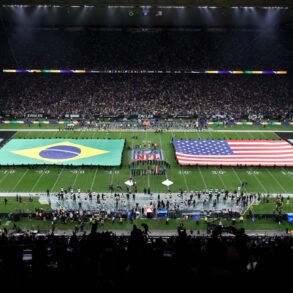
How coaches salaries and the NIL bill affects college football
Dan Wolken breaks down the annual college football coaches compensation package to discuss salaries and how the NIL bill affects them.
Sports Pulse
With rookie minicamps wrapped up and the full 2025 NFL schedule set to be released on Wednesday, the upcoming NFL season is quickly approaching, and the anticipation for it is once again spiking.
Part of that hype and anticipation for the schedule has to do with a tradition that takes place this time of the year: the NFL’s network partners — Fox, CBS, NBC, ESPN and Amazon Prime — leaking some of the marquee games that will be carried on their airwaves or streaming platform.
Of the leaks, which include international games, that have already happened, perhaps the most talked about one is the NFL on Fox divisional doubleheader on Dec. 20. The games featured are four high-profile teams: The Philadelphia Eagles vs. Washington Commanders and Green Bay Packers vs. Chicago Bears.
December 20, huh? Yes, the first thought that might come to mind for the avid college football fan is correct, as that is the first weekend of the upcoming College Football Playoff schedule. Why is that allowed, when college football and the NFL generally don’t intersect?
Here’s what you need to know about the Sports Broadcasting Act of 1961 and whether there is a violation of its boundaries with the Fox’s NFL doubleheader and the start of the College Football Playoff:
Sports Broadcasting Act of 1961 explained
In short, when Congress passed the Sports Broadcasting Act of 1961 — which is also known as the Act of September 30, 1961 — it gave the NFL antitrust exemption from bargaining for or selling their broadcasting rights, as long as the NFL doesn’t play a game on the second Friday in September through the second Saturday in December. While other professional leagues are included in the act, it is mainly for the NFL. Why mainly the NFL? Well, the Department of Justice found the NFL’s method of negotiating television broadcasting rights violated antitrust laws in the Sherman Act.
The reason why the NFL is not allowed to have a game on the second Friday in September through the second Saturday in December is because that is the traditional timeline for high school and college football season.
When the NFL played its first international game in Sao Paulo, Brazil, last year between the Super Bowl champion Philadelphia Eagles and Green Bay Packers on Sept. 6, 2024, the NFL did not violate the Sports Broadcasting Act of 1961. The reason for that is, Sept. 6 fell on the first Friday in September and not the second. This is the same reason why the NFL is playing another game in Brazil this year, where the Los Angeles Chargers are the home team.
Sports Broadcasting Act of 1961 boundaries
According to Section 3 of the Sports Broadcasting Act of 1961, the NFL is prohibited from playing a game(s) on the second Friday in September to the second Saturday in December because of how the college football season schedule is structured.
In other words, Section 3 of the Sports Broadcasting Act of 1961 blocks the NFL from playing a game on a Friday night after 6 p.m. from Week 3 of the college football season through the Army-Navy game in Week 16.
Here’s the exact wording from Section 3 of the Sports Broadcasting Act of 1961, per govinfo.gov:
“The First sentence of section 1 of this Act shall not apply to any joint agreement described in section 1 of this Actwhich permits the telecasting of all or a substantial part of any professional football game on any Friday after six o’clock postmeridian or on any Saturday during the period beginning on the second Friday in September and ending on the second Saturday in December in any year from any telecasting station located within seventy-five miles of the game site of any intercollegiate or interscholastic football contest scheduled to be played on such a date if—
(1) such intercollegiate football contest is between institutions of higher learning both of which confer degrees upon students following completion of sufficient credit hours to equal a four-year course, or(2) in the case of an interscholastic football contest, such contest is between secondary schools, both of which are accredited or certified under the laws of the State or States in which they are situated and offer courses continuing through the twelfth grade of the standard school curriculum, or the equivalent, and(3) such intercollegiate or interscholastic football contest and such game site were announced through publication in a newspaper of general circulation prior to August 1 of such year as being regularly scheduled for such day and place.“
All told, since the College Football Playoff doesn’t start until the third week in December − as first-round games are to take place Friday, Dec. 19 and Saturday, Dec. 20 this year − the NFL is not restricted from playing its doubleheader on Fox between the Commanders-Eagles and Bears-Packers on Dec. 20.
College Football Playoff schedule 2025-26
- College Football Playoff 2025-26 start date: Friday, Dec. 19, 2025
- College Football Playoff 2025-26 end date: Monday, Jan. 19, 2026
Here’s a look at the schedule for the 2025-26 College Football Playoff from the first round through national championship:
First Round
- Friday, Dec. 19: One game (on-campus site)
- Saturday, Dec. 20: Three games (on-campus sites)
Quarterfinals
- Wednesday, Dec. 31, 2025: Goodyear Cotton Bowl Classic (AT&T Stadium — Arlington, Texas) at 7:30 p.m. ET on ESPN
- Thursday, Jan. 1, 2026: Capital One Orange Bowl (Hard Rock Stadium — Miami Gardens, Fla.) at Noon ET on ESPN; Rose Bowl Game (Rose Bowl — Pasadena, Cali.) at 4 p.m. ET on ESPN; Allstate Sugar Bowl (Caesars Superdome — New Orleans) at 8 p.m. ET on ESPN
Semifinals
- Thursday, Jan. 8, 2026: Vrbo Fiesta Bowl (State Farm Stadium — Glendale, Arizona) at 7:30 p.m. ET on ESPN
- Friday, Jan. 9, 2026: Chick-fil-A Peach Bowl (Mercedes-Benz Stadium — Atlanta) at 7:30 p.m. ET on ESPN
2026 CFP National Championship
- Monday, Jan. 19, 2026: Hard Rock Stadium (Miami Gardens, Fla.) at 7:30 p.m. ET on ESPN
The USA TODAY app gets you to the heart of the news — fast. Download for award-winning coverage, crosswords, audio storytelling, the eNewspaper and more.
This post was originally published on this site be sure to check out more of their content.






